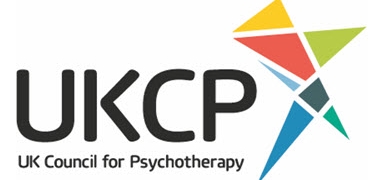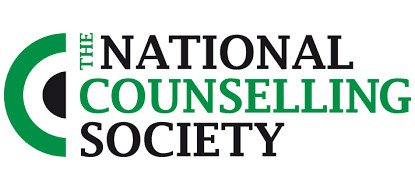About Nat Bolonkin (they/them)
Nat Bolonkin
LOCATION: Central Brighton and online
AVAILABILITY: Tuesday daytime & evenings and online - other times with arrangement
PRICE: £65-75 per session / £90 couples
SPECIALISMS:
Self-esteem & identity
Relationships & communication
Couples & relationships
Repetitive & destructive patterns
Anxiety
Depression
Gender identity
Transitioning
Sexuality
Relationship diversity
Loss and grief
Illness
Bereavement
End of life
Life decisions
Creative identity
Training
Nat (they/them) has a Post-Graduate Certificate in Integrative Arts Psychotherapy from the University of East London, and a Professional Certificate in Counselling using the Arts from the Institute for Arts in Therapy and Education. These humanistic and integrative courses teach key psychotherapeutic counselling skills and how to practise safely, ethically, and effectively, and cover a range of theories, frameworks and concepts such as Attachment Theory, Gestalt, Transactional Analysis, Psychoanalysis, and the neurobiology of trauma. There is also emphasis on enabling clients to communicate their inner world through the arts, including sculpture, music, the body and movement, art, puppetry, sand tray, roleplay, visualisations, metaphors, and dreams
Nat is fully insured, has an enhanced DBS certificate and is a registered member of the BACP.
Nat was previously a psychotherapeutic counsellor with the LGBT+ East London Out Partnership, and a bereavement counselling service volunteer at Trinity Hospice London. Nat also trained in Transformative Mediation Skills at Camden Mediation Service.
Approach
Nat offers a variety of therapeutic techniques.
Talk therapy
Nat offers in-depth talk therapy, and draws from various approaches to personalise sessions according to what is important for the client, suggesting relevant practical methods and techniques if appropriate. Nat does not offer ‘answers’, but supports clients’ personal exploration towards understanding, acceptance, meaning and change.
Nat offers a confidential, non-judgemental and supportive space where clients can:
air issues and concerns freely
explore thoughts, emotions and behaviours
gain personal insight
develop a better understanding of relationships
consider how the past might be continuing to affect the present
unlearn old patterns and relearn more beneficial ones, creating internal change
experiment with new ways of responding and, with support, apply these outside sessions
be fully themselves
Nat is trauma-informed and attachment-based, and places emphasis on a supportive yet inquiring client/therapist relationship. Nat also specialises in mindfulness and self-compassion, and using creativity and the arts as an enjoyable yet profound form of exploration and expression.
Clients also have the choice to combine talk therapy with creative therapy.
Creative therapy / Sand tray therapy
We are all naturally creative and Nat specialises in using creativity and the arts to assist clients to express themselves more freely, to deepen an exploration, and to help when a topic is more difficult to speak about.
Some people are naturally drawn to working this way, and some discover how extraordinary and fulfilling it can be through experimentation.
This form of in-depth therapy also reveals the innate creativity we all possess in a safe and non-judgemental space, and can help with creative blocks as well.
Creative therapy is an intuitive way of working and allows clients to express themselves however they want to, using whatever creative medium inspires them, on whatever topic needs exploration. Nat helps clients explore the feelings, meanings, and possibilities contained within the creative expressions, and encourages clients to consider how these new perspectives might allow them to experiment with new approaches to life.
Clients can choose to work in this way, or combine it with talk therapy. It is also possible to work using sand tray as a standalone creative therapy.
Self-esteem and identity
Living as our true selves can be difficult when we feel unable to recognise or reveal our authentic self, or we feel insecure about or even ashamed of who we feel ourselves to be. We might also think there are parts of us that don’t seem to fit with ideas we have of ourselves, which can be confusing. Or perhaps fear arises when we need to make an important decision, or a significant life event has changed who we thought we were. This can lower our confidence, and lead us to make decisions that limit our opportunities and impede our growth, experience loss and grief, and cause us stress, anxiety and depression.
Identity and self-esteem arise as issues in many areas of life, and Nat has worked with clients on issues such as: gender identity, transitioning, and sexuality; work and career; trauma, illness, end of life, and bereavement; and major life decisions and life paths, amongst others.
Nat assists clients to explore their authentic self, where any limiting beliefs may have stemmed from and how this may be a form of protection, and helps them process the emotions arising from this exploration, as well as work towards expressing themselves confidently and living authentically and joyfully.
Relationships and communication
Connecting with others is as necessary as breathing, and yet we often experience difficulties forming and maintaining friendships and intimate relationships, navigating relationships with family members, and negotiating interactions with acquaintances and colleagues. Finding it difficult to communicate our needs effectively can lead to feelings of loneliness, isolation, anger, frustration, sadness and despair.
Finding out how we approach relationships, our communication style, and how these may have developed as ways of protecting ourselves, can be beneficial, and Nat supports clients to reflect on the emotional effects, and experiment with different approaches both in and outside sessions, working towards more enjoyable and fulfilling relationships.
Nat sees clients with issues such as: early childhood relationships; relational trauma; parent/child issues; family roles and dynamics; sibling rivalry; manipulative and coercive relationships; sexual compatibility; breakups; relationship diversity; social anxiety; and workplace communication skills.
Repetitive and destructive patterns
We sometimes find ourselves thinking, saying and doing things we don’t want to and yet we seem unable to change this. This can be detrimental to ourselves and have far-reaching consequences across all areas of our lives, and impacts those close to us as well. When we get stuck there doesn’t always seem to be a way out of the endless cycle, and we can experience feelings of fear, misery, dejection, regret, self-loathing, failure and hopelessness.
Nat creates a safe, non-judgemental atmosphere with an emphasis on how these behaviours may have originally developed as a protective function, and encourages clients to examine these patterns, consider where they may originate from and their emotional and everyday impact, as well as explore new possibilities and approaches towards living life more freely and peacefully.
Repetitive patterns come in many guises and Nat works with issues such as: stress, overwhelm, intrusive thoughts, personal boundaries, body image, perfectionism, workaholism, anger, compulsive behaviours, and addictions.
Other information
Originally from Australia, Nat also has a BA (Asian Studies) and a Post-Graduate Diploma in Education. Nat completed the Foundation of Buddhist Thought at Jamyang Buddhist Centre London, and taught Mindfulness-Based Stress Reduction at the London Centre for Mindfulness, as well as privately.
Alongside counselling Nat also creates opportunities for play with children and their caregivers in hospitals, hospices and specialist care centres.






